Maybe it's his infectious sense of enthusiasm; but when Lord Attenborough boards business projects, things seem to happen.
As well as winning eight Oscars for Gandhi in 1982, Attenborough was the founding chairman of Capital Radio, London's most successful radio station in 1972 and founding deputy chairman of the UK's Channel 4 television station in 1982.
Now, he has now become chairman of a project that he describes as his most important venture to date - the creation of an international film and television studio just outside Cardiff, Wales.
It's also likely to be one of his most challenging and difficult projects to pull off. The studio's Welsh location and the fact that there are a number of other rival studios projects in the works in the UK, has led to some industry scepticism about the viability of the project. That's without even factoring in the rollercoaster nature of British film production.
Called Dragon International Studios, the complex will occupy an area of 160 acres - more than the size of Pinewood and Shepperton combined - and will initially house seven sound stages. Four will be for film, with the largest measuring 30,000sq ft, and three for television. "It's on a brownfield site - an old opencast mining area," says Attenborough. "We'll be putting activity back into land which is now barren and empty."
Attenborough adds that an unnamed British bank is putting up£140m for the first phase of the project, and that construction is set to begin in spring next year with the studios opening in Autumn 2004.
The driving force behind the studio is Welsh born entrepreneur and chartered engineer Stuart Villard, whose business interests include property investment and development companies. He will act as CEO of Dragon International Studios and Leisure Ltd, the parent company of the studio project, which envisages building a£120m film theme park alongside the studios.
Also on board are two longstanding colleagues of Attenborough: managing director Terence Clegg and executive director in charge of public affairs Diana Hawkins. Both worked closely with Attenborough on films such as Gandhi, Cry Freedom, Chaplin and Shadowlands.
Attenborough is certainly enthusiastic about the project, which he says will provide cutting edge facilities and strong employment prospects in an area that traditionally sufferers from high unemployment. "Nothing is as important as this", he says, comparing it to his roles at Capital Radio and Channel 4. "Cinema is my world - I've lived and breathed it for the past seventy years."
Others seem to share his enthusiasm, including British Prime Minister Tony Blair who told the House of Commons in October that the project was "immensely exciting," adding "I've no doubt that the spin-off in terms of jobs and industry will be enormous."
The Welsh authorities also seem to keen to back it, with the Welsh Assembly behind it and local Welsh authority - Rhondda Cynon Taff County Borough Council - expected to give a green light to the studios on December 5.
Attenborough's biggest battle, however, will be persuading the British and international film industry to use Dragon International studios. Certainly there are supporters, including rival studio heads. Michael Grade, head of Pinewood/Shepperton comments: "We've not been privy to details of the Cardiff plans, but we welcome anything which improves the facilities available to support the British film industry."
Others are more cautious. Another UK industry figure, who prefers to not to named, says: "You're never going to have the next Bond picture going to Cardiff. I don't see that at all," adding: "Most of the British film industry lives within the M25 [London's orbital motorway]. Getting them to drive over two hours to Cardiff is a big no-no."
Others wonder whether the British film industry needs the extra studio space that Dragon will offer. According to Screen International figures, UK production levels have dropped off by nearly 40% this year; inward investment, meanwhile, fell by 57% last year.
For the moment, the UK's biggest studio complex, Pinewood-Shepperton, is full, booked up by films such as Tomb Raider 2, Stephen Fry's Bright Young Things, Gwyneth Paltrow vehicle Ted And Sylvia, Mel Smith's Blackball and Working Title's Johnny English. However, in the New Year, Pinewood-Shepperton is expected to be actively hunting for business.
The launch of Dragon also comes as a spate of new studios have just opened or are planning to do so. A new studio complex opened earlier this year on the Isle of Man, an outpost of the UK which offers generous financial incentives to films shooting on the island. Work has also just begun on a $9m (£5.76m) studio in St Agnes, Cornwall, while it is understood that there are further plans to launch studios in Bath and Devon.
Others have tried, but failed to get studios off the ground. After years of feasibility studies and grand designs, Scottish Enterprise concluded in October that there was insufficient demand within the Scottish film industry to justify the construction of a large-scale film studio. At one stage, Sean Connery and Sony were considering collaborating on a combination of studio and production slate that would have made such a venture viable.
However, Attenborough believes that the industry will be drawn to Dragon's state of the art studios, which are being designed in consultation with industry professionals. "Stuart Craig (production designer on the Harry Potter films) has just spent the day with us'everyone will come in from the industry so that we get a studio that is unique"
He adds: "Pinewood/Shepperton has grown in a topsy turvy fashion. We're starting from the bottom up. It will be a studio for professionals by professionals."
He also believes that its Welsh location - 150 miles from London - will be an advantage because of the lower costs of the area. "We estimate that by virtue of where we are, we'll be able to reduce the below the line costs of a movie by 25-30%."







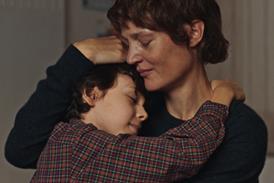

![[Clockwise from top left]: 'The Voice Of Hind Rajab', 'A House Of Dynamite', 'Jay Kelly', 'After The Hunt', 'The Smashing Machine'](https://d1nslcd7m2225b.cloudfront.net/Pictures/274x183/1/7/0/1459170_veniceawards_837515.jpg)


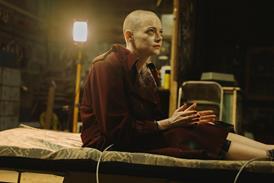
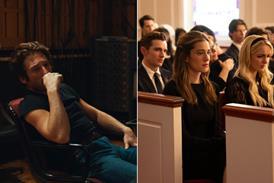


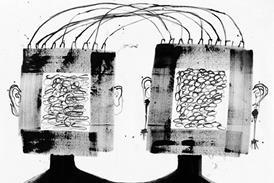
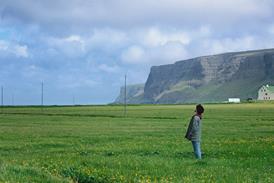

No comments yet